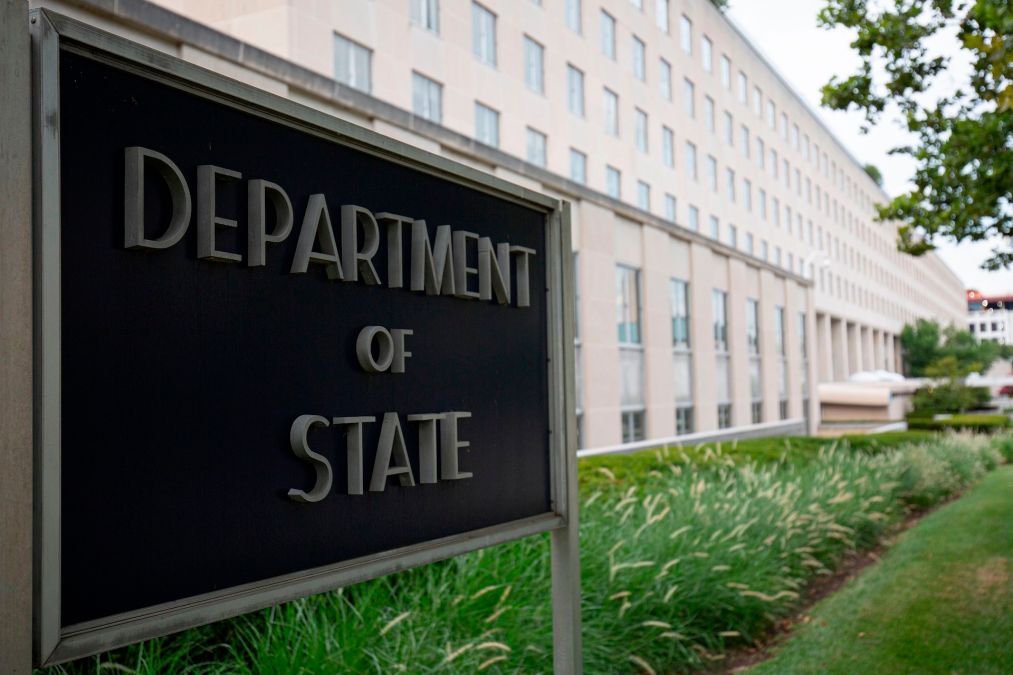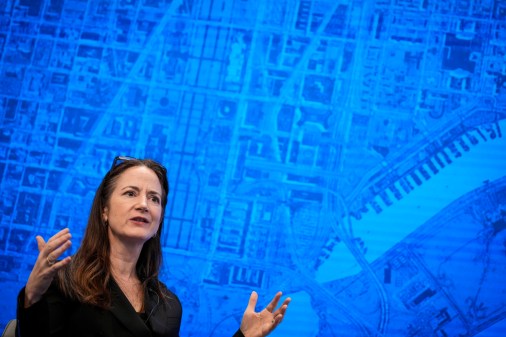Growing pains at the Bureau of Cyberspace and Digital Policy, report finds

Officials at the State Department are working through roles and hiring challenges at the Bureau of Cyberspace and Digital Policy, according to a Government Accountability Office report.
The Thursday report, which looks at cyber diplomacy efforts in the United States, reported that officials at the new bureau responsible for pushing U.S. cyber policy interests abroad said clarifying roles and responsibilities are an ongoing challenge.
“State officials told us that since cyber issues may be relevant to almost any aspect of diplomacy, communication within State to ensure awareness and visibility of issues so expertise is fully utilized is an important, related challenge,” the report noted.
The bureau was established in 2022 following years of negotiations between Congress and multiple presidential administrations, and was one of the major recommendations of the congressionally mandated Cyberspace Solarium Commission. Nate Fick in 2022 became the State Department’s first ambassador at large for cyberspace and digital diplomacy.
One major issue that the GAO raised is that there is not a global agreement on what cyber diplomacy between governments, the private sector and other organizations looks like, contributing to issues and questions with roles.
One example is between the Cyber Diplomacy Bureau’s Digital Freedom unit and the Bureau of Democracy, Human Rights, and Labor, which both cover similar roles in free speech online and fair access to the internet, the report notes.
“CDP’s role is to contribute expertise on tech policy, to collaborate with other State units to develop complementary positions on topics, and to engage with partner countries on statements and other activities, whereas DRL’s role is to advance internet freedom through bilateral and multilateral diplomacy and by funding civil society-led projects,” GAO said.
When multiple offices are involved in similar issues, GAO found that “officials clarify roles on an ad hoc basis” to avoid such conflicts.
The report also provided an update on previous recommendations from the GAO to the State Department as the new cyber bureau was being established.
A previous report by the GAO in 2020, as the establishment of the cyber bureau was underway, noted that the State Department did not involve other federal agencies that also work in cyber diplomacy. Following the recommendation, State met with senior officials at multiple agencies to identify risks. Another report in 2021 found that State did not demonstrate the use of data and evidence to develop the cyber bureau proposal, which was also followed up on by the department to implement that information.
The Foundation for the Defense of Democracies, a Washington-based think tank, has also released a set of recommendations last year for increasing diplomacy efforts through cyber capacity building.



